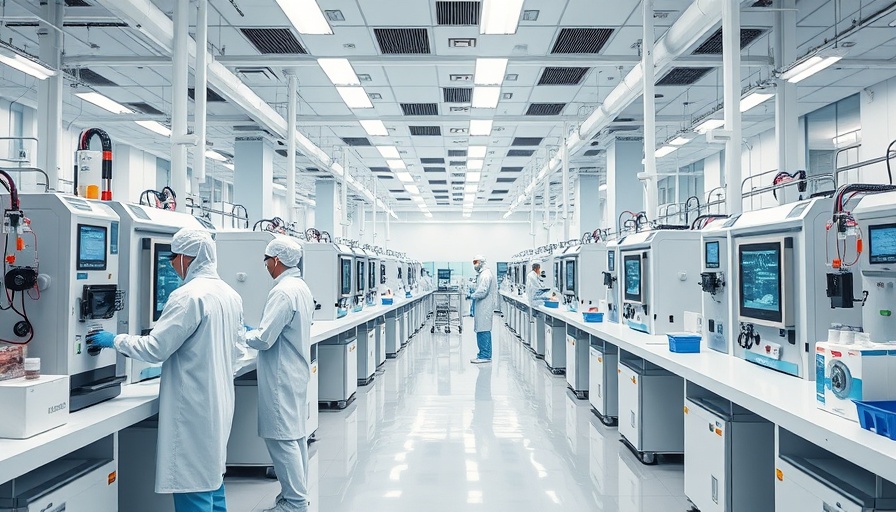
Reevaluating the Pharmaceutical Supply Chain Landscape
As more than 80% of active pharmaceutical ingredients (APIs) consumed in the U.S. are sourced from overseas, the drug manufacturing sector is confronted with profound vulnerabilities. This situation raises critical questions about the effectiveness and reliability of a supply chain that seems increasingly fragile amidst global disruptions. Competitors and allies alike are increasingly focusing on how to better secure access to essential medicines, prompting a conversation that has now reached boardrooms, policy forums, and community discussions across the nation.
The Pervasive Need for Reshoring
Global events, such as geopolitical tensions and public health emergencies, have heightened awareness of these vulnerabilities. Reshoring is becoming a buzzword, resonating with health experts, manufacturers, and consumers alike who are anxious about the implications of drug shortages for their health and wellbeing. Notably, the impacts on health systems have spurred calls for manufacturing strategies that can withstand unpredictable material costs.
Lessons from the Pandemic: Enhancing Supply Chain Resilience
The COVID-19 pandemic unveiled the naked vulnerabilities of our manufacturing outsourcing practices. Hospitals faced overwhelming challenges due to the unpredictability of supply chain logistics, resulting in acute shortages of essential medications. These experiences compel executives to reconsider the existing dependency on global suppliers, particularly from countries like China and India, where compliance and delivery times can fluctuate drastically.
Strategic Benefits of Bringing Manufacturing Home
Reshoring isn’t just a patriotic endeavor; it stands as a pragmatic response to mounting evidence showing that domestic production can mitigate risks and drive supply chain reliability. By focusing on building relationships with reliable U.S. suppliers, executives can protect their businesses from ongoing price volatility. This strategic pivot can also lead to improved profit margins in manufacturing by reducing lead times and avoiding conflicts associated with international trade policies.
Future-Proofing American Drug Manufacturing
The future of pharmaceutical production resides in the ability to create a more localized and regulated industry that can adapt rapidly to changing market needs. As economic disruptions and trade tariff discussions grow more complex, manufacturing companies must aim to build a resilient business strategy that can withstand both geopolitical tensions and economic fluctuations. Establishing near-shore and domestic partnerships is more essential than ever.
Actionable Insights for Executives
Executives can play a crucial role in shaping the future of their companies by prioritizing strategies for greater local sourcing. Those interested in navigating the challenges and exploring alternative sourcing strategies need to adopt comprehensive planning and risk management approaches. This includes assessing compliance regulations and identifying local suppliers as a way to mitigate risks associated with fluctuating international material costs. Ultimately, companies must become proactive with developing a reliable production framework.
Call to Action: Preparing for Future Disruptions
As we approach the critical juncture of reshoring efforts, it’s imperative for businesses to leverage these discussions for strategic advantage. Executives should evaluate their current sourcing strategies and determine how to future-proof their operations. By doing so, they are securing not just their businesses’ success today, but also their role in sustaining the health and wellbeing of all Americans during future crises.
 Add Row
Add Row  Add Element
Add Element 



Write A Comment